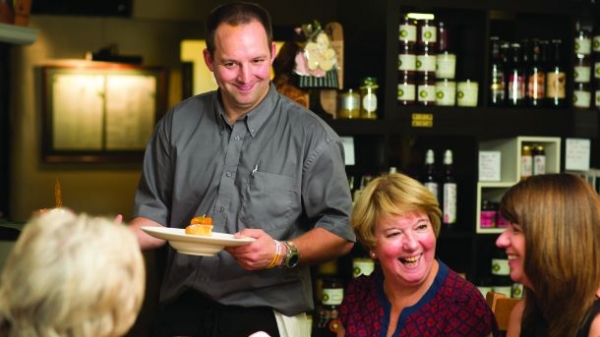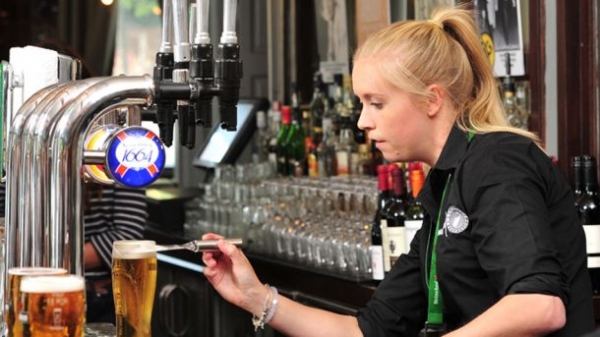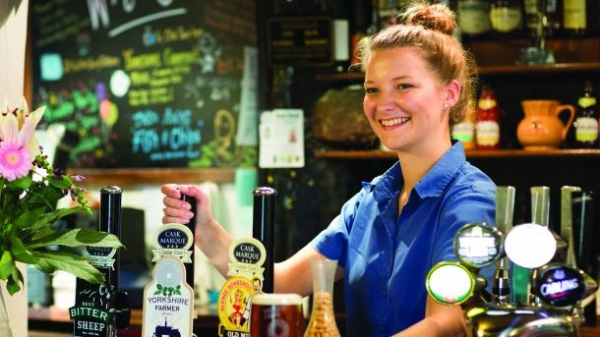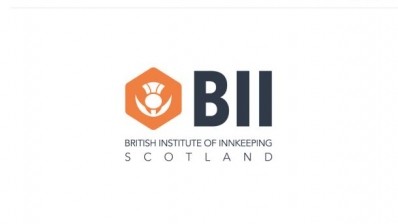Business
See the bigger picture: Why taking a macro view of your business is important
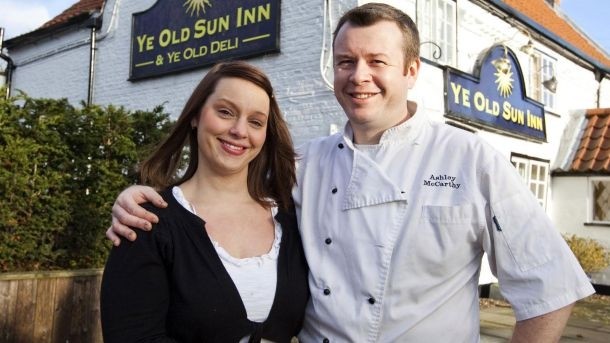
The couple took Ye Old Sun Inn in Colton, North Yorkshire, on a lease in 2004. “We did everything ourselves,” says Ashley. “I was full time in the kitchen then I would cut the grass. I was doing 80 hours a week – it just took over.”
In 2009, the couple made the final for the BII award, and a visit from the judges would prove a turning point. “Some of the questions made us realise we were not as good as we thought we were and afterwards we asked ourselves how we could improve.”
As the global financial crisis changed the face of the sector, the couple bought the freehold of the pub and extended the restaurant and kitchen. But the big impact was hiring staff to take on day-to-day operational duties.
“Kelly and I now work on the business,” says Ashley. “We set menus, choose events, evaluate the marketing, visit other pubs.” As well as getting more personal time into their work-life balance, the duo won the previously unattainable BII award in 2013.
The benefits of the hands-off approach was confirmed when key members of staff left the business 18 months ago. “I went back in the kitchen full time,” says Ashley. “It reminded us of how it used to be. We lost the time to answer the phone and emails. You can see in the books that we took a hit.”
His tip to others looking to get time away from pulling pints to consider strategy is to focus on recruiting and training deputies.
“You have to get the right staff in,” he says. “If you just hire anybody they can be a hindrance rather than a help.”
The couple carry out extensive training as well as sending staff on external courses to learn about issues such as cellar management and food hygiene. “We used to shut the pubs for holidays – now we go away when we want to,” says Ashley.
Step back
Licensed trade consultant Philip Sambell says it is common for single-site licensees to work 80-plus hours a week. “Staff represent a major cost for pubs, and licensees are looking to minimise it,” he says. “But they get very tired and chronically overworked and make mistakes. Every now and then it is worth stepping back and taking a strategic view.”
Sambell’s first piece of advice is to dust down and re-imagine your business plan. “Licensees should remember that business plans are not file-and-forget – they need to be reviewed regularly. Some big pub businesses update theirs every VAT quarter.”
Key things to consider are your customer demographic and competitor activity. “What kind of customers are you trying to attract and what will you offer them?” asks Sambell. “It is no good taking on a community-led boozer where customers want to see Euro 2016, and trying to put on jazz and poetry.
“Any successful publican has ATD – attention to detail. How are staff greeting customers? How are meals being served? How often are the toilets being cleaned?
“But you also need to take time out. Go to trade shows, go to other pubs. Have a good relationship with your independent stock taker because they will be a mine of information,” he says. “Have an evening off and go for a meal – you will pick up ideas.”
Sambell says training staff in the fundamentals of running the pub is critical to allow owners to take time out.
“You need to know what to prioritise and make sure you find time for those things. Train someone to clean the beer lines – it empowers them and allows you to have a holiday and get away from the drudge.”
What You Need To Do
Tips for working on, rather than in, the business
■ Recruit and train capable staff
■ Update your business plan regularly
■ Delegate key tasks wisely
■ Make time to think
■ Take the customer journey
New-found time
Mark Robson, managing director of Surrey-based multiple operator Red Mist Leisure, says, with hindsight, the firm grew too quickly from one to four pubs. “We were working six or seven days a week, putting in 70 hours,” he says. “And we broke even over those years.”
As with the McCarthys, the credit crunch played a part in turning the business around. “We bought the freeholds for three of the four pubs, selling the lease on the other,” says Robson. “We could borrow against the freeholds to fund the purchases and refurbishments.”
He was running the Duke of Cambridge in Tilford, Surrey, at the time, and apprehensive about hiring a manager for it. “As it happened she was better than me. She was not constantly distracted and worried; she was focused on great results for customers.”
Robson used much of his new-found time to focus on the customer experience across the three refurbished pubs. “I implemented a loyalty system; took on someone a few hours
a week for social media; measured feedback; created a mystery diner programme.
“We became champions of customer service where we would go the extra mile – learning what school a customer’s daughter went to, for example. Anything to gain loyalty.”
There were also some pure financial gains of Robson not drowning in immediate tasks. “I looked closely at our energy costs and saved £10,000 a year.”
Robson says licensees don’t have to hire managers to learn from the Red Mist story. “You don’t have to completely remove yourself but maybe do so one day a week. Have a board meeting every six months to talk about plans for the next three years.”
Nuts and bolts
Talking to people outside the pub and even the sector can be hugely beneficial, he says. “I get together with people from different industries. We have made massive changes to our decisions based on those meetings. It is so important to step back and work on the nuts and bolts of your business. A haze comes over you when you are in the business every day. You need a clear head.”
Richard Simm, who runs three pubs in Kent, took an ownership role at the Ragged Trousers in Tunbridge Wells, Kent, in 2006 “as a hobby” but soon had to quit his day job.
“For two years, I was the bar manager then I moved into more of a general manager role then effectively became managing director,” he says. “To move away from the general manager role, quite simply, I employed decent management staff and trained them.”
He said this decision was originally taken to cut his workload down from 90 hours a week, rather than to make money. “But it has worked out well. I would not have been able to grow the business if I had not employed people.”
Being outside the day-to-day operation allowed Simm to spend three months focused on setting up the firm’s latest pub, the George in Tunbridge Wells.
“As a pub owner, expect to do the large and the small,” says Simm. “You will be asked to fix a toilet but make sure you find time to be on your own and think. I have one night a week where I act as a customer in the pub, understanding the flow of customers, seeing who is happy and feeling the atmosphere.”
